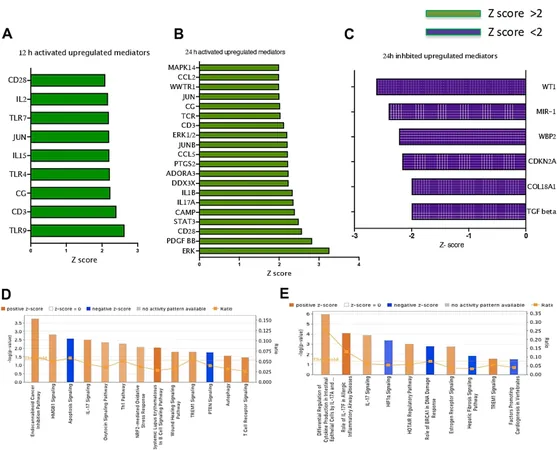
Revolutionary 'Compound B' Discovered: A Game-Changer in Immune Therapy for Cancer and Chronic Diseases!
2024-09-26
Author: Jacob
In a groundbreaking study, researchers from the University of Alberta have unveiled a new molecular compound, dubbed "compound B," that shows incredible potential in activating the immune system, paving the way for innovative treatments for cancer and chronic infections.
"This discovery marks a significant step toward creating a small-molecule drug that could enhance immune responses. It opens exciting new avenues for immunotherapy and could lead to improved outcomes for patients," stated Professor Khaled Barakat, the senior author of the study recently published in *Medicine in Drug Discovery*.
What Makes Compound B a Milestone?
Small molecules are low molecular weight compounds capable of modulating specific proteins within cells, potentially transforming the treatment landscape for various immunological diseases. Unlike conventional immunotherapy agents, which often come with high production costs, large required doses, and long half-lives (increasing the risk of adverse side effects), small molecules like compound B offer a more effective and safer alternative.
Key Advantages of Compound B:
1. **Cost-Effective**: Small molecule drugs are significantly less expensive to manufacture compared to current treatments. 2. **Shorter Half-Life**: This leads to fewer side effects and a lower chance of adverse reactions. 3. **Stability**: They maintain stability at room temperature, making them easier to distribute and store. 4. **Blood-Brain Barrier Penetration**: The ability of compound B to cross this protective barrier allows for the targeting of otherwise inaccessible tumors, a capability most immunostimulants lack.
"This unique feature could enable us to treat tumors in hard-to-reach areas, which is a huge advantage in cancer therapy," emphasizes Barakat.
The Science Behind Compound B
Derived from another promising compound, compound B boasts enhanced water solubility—an essential factor for effective absorption and distribution in the body. Initial findings reveal that compound B stimulates immune cell activity, as indicated by an increase in T cells and essential cytokines, which are proteins crucial for regulating immune responses.
Barakat's team employs cutting-edge machine learning and molecular modeling techniques to identify potential compounds, followed by laboratory tests using peripheral blood mononuclear cells (PBMCs). "Using simulated experiments in the computer allows us to efficiently narrow down compounds that could be effective in real-world scenarios," Barakat explains.
Looking Ahead
As research progresses, efforts are now focused on pinpointing specific targets for compound B to bind to, ensuring its efficacy in activating the immune response. A follow-up publication detailing these findings is already underway, promising further insights into this promising compound and its potential applications.
With compound B showing such formidable promise, the future of cancer treatment and chronic disease management may be on the brink of a revolutionary shift. Stay tuned as these developments unfold, potentially changing the lives of countless patients worldwide!









 Brasil (PT)
Brasil (PT)
 Canada (EN)
Canada (EN)
 Chile (ES)
Chile (ES)
 España (ES)
España (ES)
 France (FR)
France (FR)
 Hong Kong (EN)
Hong Kong (EN)
 Italia (IT)
Italia (IT)
 日本 (JA)
日本 (JA)
 Magyarország (HU)
Magyarország (HU)
 Norge (NO)
Norge (NO)
 Polska (PL)
Polska (PL)
 Schweiz (DE)
Schweiz (DE)
 Singapore (EN)
Singapore (EN)
 Sverige (SV)
Sverige (SV)
 Suomi (FI)
Suomi (FI)
 Türkiye (TR)
Türkiye (TR)